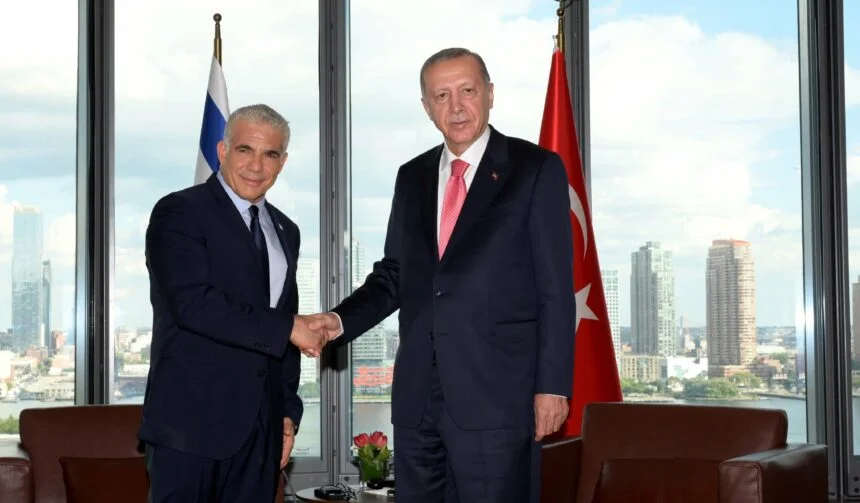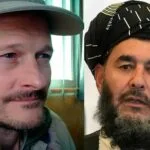Tuesday’s meeting between Israeli Prime Minister Yair Lapid and Turkish President Recep Tayyip Erdogan on the sidelines of the United Nations General Assembly broke 14-year ice and ushered in expectations for cooperation driven by the potential to sell natural gas to an energy-desperate Europe.
The presidents of the two nations met face-to-face for the first time since 2008 on Tuesday in New York, according to Lapid’s office, where they talked about “economic and energy cooperation.”
Israel and Turkey announced the full restoration of diplomatic relations and exchange of ambassadors a month ago, a milestone that Lapid called “an essential asset for regional stability and extremely positive economic news for the residents of Israel.”
Intense criticism of Israel’s treatment of Palestinians has come from Turkey during the past fifteen years. Turkey was the first Muslim nation to recognize Israel as a state and, until 2008, was one of its greatest friends in the area. Erdogan has frequently compared his democratically elected Islamist party to Hamas, the organization in charge of the blockaded Gaza Strip, calling it “a resistance movement that protects the Palestinian homeland against an occupying authority.”
Diplomatic turbulence was brought on by Turkey’s growing criticism of Israel’s treatment of Palestinians. After 10 Turkish activists were killed by an Israeli navy commando attack on a flotilla carrying aid to Gaza in 2010, Ankara summoned its ambassador. Following violent protests on the Gaza border sparked by President Donald Trump’s decision to transfer the U.S. Embassy to Jerusalem, tensions flared up once again in 2018, and Israel and Turkey both called their respective ambassadors home.
In recent months, however, the tide has shifted as Israel attempts to export billions of cubic meters of natural gas to a European market that is trying to wean itself off of Russian supplies by utilizing its freshly found offshore natural gas fields. In preparation for what might be a challenging winter, European leaders are developing a global, patchwork energy strategy that includes Israeli gas. Compared to 40 percent before Moscow invaded Ukraine, pipeline gas from Russia now accounts for just 9 percent of all gas imported into the European Union.
Israel will be able to send natural gas to Europe via Egyptian liquefaction facilities due to a pact that European Commission President Ursula von der Leyen signed with the presidents of Israel and Egypt in June as part of this initiative.
Due to the diplomatic tension, Ankara gave up on negotiations years ago to construct an undersea natural gas pipeline connecting Israel with Europe via Turkey.
Erdogan nonetheless referred to Israeli President Isaac Herzog’s first trip to Turkey in nearly ten years in March as “a chance to resume the collaboration on the theme of energy that began previously.”
Erdogan prioritized energy in Turkey’s foreign policy during his speech to the General Assembly on Tuesday. “Turkey has always viewed energy as a sector of collaboration rather than rivalry,” he said. “We have carried out several projects to help local and international energy security in addition to our requirements.”












